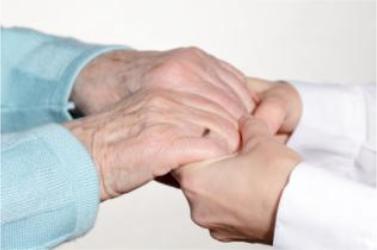Guardianship and Conservatorship – St. Louis Elder Law Attorneys
From Nikki’s interview for the Masters of Estates & Probate series on ReelLawyers.com.
From Alicia’s interview for the Masters of Estates & Probate series on ReelLawyers.com.

In general, Guardianship and Conservatorship describe the appointment by the Probate Court of a person with authority to make most decisions about your care and custody and with authority to manage and control your financial affairs. Most often, a guardianship and conservatorship request is presented to the Court at the same time.
Guardianship
A Guardian is a person appointed by the Probate Court with authority to make all decisions about the care and custody of an incapacitated person (called the Ward). A petition must be filed with the Court and a hearing held. The Ward loses all civil rights such as the right to determine where to live, the right to request or refuse medical treatment, the right to vote or make a contract, and the like. The Guardian must make annual reports to the Court regarding the status of the Ward. In some situations it is appropriate for the Court to appoint a Limited Guardian who is given authority to make decisions in only those areas that the Court specifies.
Conservatorship
A Conservator is a person appointed by the Probate Court with complete authority to manage and control the financial affairs of a disabled person (called the Protectee). The Protectee loses all rights with regard to finances. A petition is filed with the Court and a hearing held. The Conservator must make an annual accounting to the Court regarding all money coming in and going out of the Protectee’s estate. In some situations, it is appropriate for the Court to appoint a Limited Conservator who is given authority to make decisions about only those financial matters that the Court specifies.
Duties of Guardianship
- To protect a loved one who is not able to care for him/herself. For example, to protect a loved one who refuses to take necessary medications.
- To prevent serious injury, illness or disease to self or others. For example, guardianship is helpful where a person is not feeding him/herself or is unable to prepare meals.
- To provide safe and clean shelter to a person who cannot care for themselves or their residence.
Duties of Conservator
- To protect assets from financial abuse and fraud. Disabled persons can be easy targets for abuse and fraud by strangers and, unfortunately, even by family members. Use a Conservator to stop financial abuse and fraud.
- To protect and preserve an estate from waste. In the event a loved one is unable to make proper financial decisions, use a Conservator to stop waste of necessary assets so as to preserve the estate for the ward’s well being. For example: if a person cannot understand the nature of his/her assets or how to pay necessary expenses, a conservatorship can be used to protect the estate.
- To manage an estate where a disabled person is unable to manage his/her own affairs.
- To avoid family feuding/conflict about control of a loved one’s estate.
Downside of Guardianship and Conservatorship
- Probate Court process can be expensive.
- A stranger can be appointed to make decisions about your care and/or your financial affairs.
- Your business affairs become public record.
- Investment options are restricted.
Guardianship and Conservatorship Litigation
But with the right attorney, it’s bearable. Probate and guardianship litigation cases are most appropriately handled by attorneys who focus their practices in these areas.
The attorneys at Mitchell, Brown & Associates, LLC have been extensively involved in probate and guardianship litigation cases. Whether the case involves determining the validity of the terms of a Will, forcing proper accountings and distributions of an estate, questioning the necessity of placing someone under a guardianship, or determining the most appropriate person to serve as the guardian of an incapacitated person, our attorneys have worked frequently on these types of cases. Please contact us if you would like us to assist you in any of these areas.
The events surrounding the aging and incapacity of an adult as well as the death of a loved one can often be emotional and difficult to handle. Unfortunately, these otherwise tough times in a family can many times be complicated by disagreements within a family of an incapacitated person or deceased individual. These disagreements many times result in probate or guardianship litigation cases. In many instances, the techniques used in probate and guardianship litigation cases in St. Louis Country, St. Louis City, St. Charles County or almost anywhere in Missouri, is vastly different than the techniques employed in other types of litigation. Because many counties have courts specifically dedicated to hearing probate and guardianship cases, those Courts conduct their cases differently from Courts that have more general jurisdiction over a wide variety of cases.
Guardianship Litigation – Any time that a guardianship action is initiated, some level of controversy is likely to exist related to whether or not the incapacitated person is sufficiently unable to care for themselves that they need a guardian. Additionally, various family members of the incapacitated person may also disagree on who the most appropriate person may be to serve as the guardian. In either of these cases, severe litigation generally arises when the family does not agree as to the best course of action for the incapacitated person.
We encourage you to contact our St. Louis attorneys to get the advice you need. Together, we can discuss your long-term goals and advise you on planning that will allow you to reach those goals.

